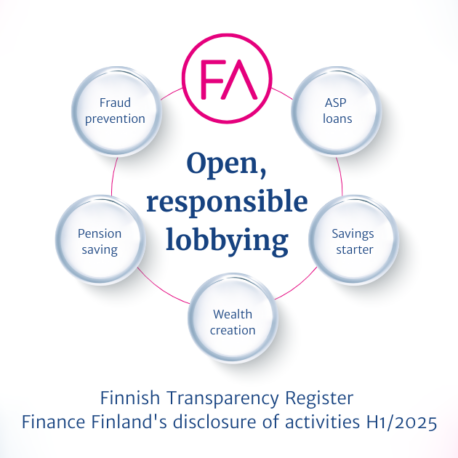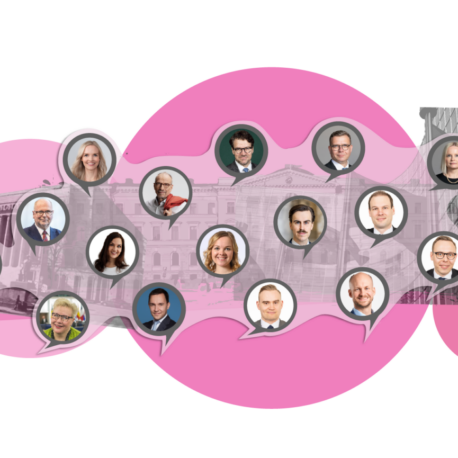
Power belongs to the people. The distribution of power will be determined in the upcoming parliamentary elections, in which people will confer their mandate to the 200 Members of Parliament, who will hopefully use their powers wisely, responsibly and in broad consultation with multiple experts and interest groups.
A skilled decision-maker listens to the viewpoints of multiple interest groups and experts and weighs them carefully before making an informed decision. A decision-maker who only listens to the views of their own reference group fails to see the forest for the trees and is thus unable to move things forward in a democratic process; other views must also be accounted for.
High-quality legislative drafting must identify how the outcome will affect the people and sectors in the scope of the legislation. To ensure this, the drafting process must involve experts and interest representatives who are specialised in the subject matter.
When preparing legislation on accessibility, the process must involve the Finnish Federation of the Visually Impaired, the umbrella organisation for Finnish associations of the visually impaired. When drafting legislation concerning investment and the regulation of banks, life and non-life insurers and employee pension companies, it is important to allow Finance Finland to weigh in and offer its expertise as the common voice of the Finnish financial sector. Legislation applies to the everyday lives of people.
To create high-quality legislation that serves the interests of people, the process must be pluralistic, multi-voiced and transparent. Such a process also strengthens people’s trust in a representative political system.
Lobbyists are an integral part of the democratic process, and their vital work must be transparent. Finland’s statutory transparency register, to be established in January 2024, will make lobbying even more transparent and public.
The statutory transparency register will markedly increase the transparency of lobbying that targets preparation and decision-making at the parliamentary and ministerial level. In the future, individual citizens, the media and researchers will have access to extensive information about who are seeking to influence political decision-makers and officials at the Parliament and the ministries.
Lobbying activities will be published in the Avoimuusrekisteri.fi service maintained by the National Audit Office of Finland. All information submitted to the register will be available free of charge. The information will be public for ten years, after which it will be archived for research and other purposes.
The statutory transparency register will demystify lobbying, which is why Finland needs it. The register will not only be the pillar of responsible lobbying, but it will also strengthen our democracy.
Tuomo Yli-Huttula
Director of Public Affairs at Finance Finland
Chair of the Edunvalvontafoorumi, a network of Finnish lobbyists
Member of the Ministry of Justice working group tasked with preparing the transparency register
Finance Finland already annually publishes a report of its lobbying activities, disclosing the names of the political decision-makers it has lobbied in its key priorities. The reports have been published since 2020.
In a series of four columns, Tuomo Yli-Huttula discusses why Finland needs a statutory transparency register and why he has been lobbying for the register for seven years.
Avoimuusrekisteri.fi service launched on 1 January 2024
- The goal is to increase the openness and transparency of lobbying by obligating legal entities and sole proprietors to report all their lobbying activities and professional lobbying consultation targeted at the Parliament or the ministries.
- The scope of application is limited to the Parliament and the ministries, who are the primary targets of lobbying due to their position in the legislative and budgeting processes.
- Low-impact lobbying will be left outside the scope of the register, as will grassroots civic engagement and the activity of private persons.
- Lobbying activity is to be reported at the individual level, disclosing the names of the members of parliament, ministers, state secretaries, special advisers, permanent secretaries, under-secretaries, director generals and rapporteurs. Personal assistants and other staff of parliamentary groups are reported only in terms of their parliamentary group, without disclosing personal identifying information. Contact with other ministry officials is reported only at the level of their department and unit.
- The entities subject to the reporting obligation are required to submit a report twice a year. Each report must be submitted during its respective reporting period: the first period lasting from 1 January to 28 February, and the second lasting from 1 July to 31 August. The reported information must include who was contacted, what topics were discussed and what the primary means of contact were. In addition, an estimate of the financial resources used in lobbying activity must be reported once a year.
- The information submitted to the register is published in the Avoimuusrekisteri.fi service. Retrieving data from the register is free of charge.
- The registration authority in charge is the National Audit Office of Finland (NAOF), which is tasked with instructing the entities subject to the reporting obligation as well as with preparing detailed guidelines for the use of the service.
- The NAOF has set up an advisory board, whose role is to draw up and maintain recommendations for good lobbying and act as an official body of cooperation for the stakeholder groups related to the regulation. The advisory board began its work in May 2023.
Still have questions?
|Contact the columnist
Looking for more?
Other articles on the topic

More secure day-to-day life and a wealthier future ‒ Fraud prevention and promotion of retail saving and investing are key priorities in Finance Finland’s lobbying

New recommendations for good lobbying practice promote a responsible lobbying culture in Finland – Finance Finland is committed to the ethical guidelines

Finance Finland is committed to open lobbying – The 2023 transparency report covers lobbying activities in Finland and Brussels

Home is where the EU is – it’s time to roll up our sleeves and solidify our place at the heart of the Union




